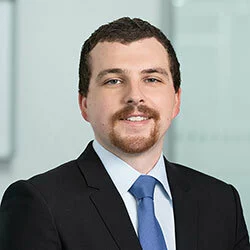At the close of 2021, the Nevada Supreme found NRS 52.380, which allowed observers and audio recording during physical or mental examinations without a prior showing of good cause, unconstitutional under the separation of powers doctrine. Notwithstanding the constitutional and legal reasoning behind the ruling, the court’s decision represents an end to a nearly 3-year policy battle. The decision also has practical implications for practitioners involved in personal injury litigation in Nevada. Namely, the appropriate procedures for physical and mental examinations are exclusively found in the Nevada Rule of Civil Procedure 35. This may not be a particularly groundbreaking legal development, but it provides Nevada practitioners with some much-needed clarity regarding independent medical examinations in civil discovery.
Policy Background
In early 2019, the Nevada Supreme Court significantly amended the Nevada Rules of Civil Procedure (“NRCP”) after nearly two years of consideration through a specially formed committee.1 As part of this reform, NRCP 35, governing physical and mental examinations in civil litigation, was revised.
As relevant here, the revised NRCP 35 allowed a potential examinee to request, as a condition of the examination, to have an observer present at the examination. However, this observer could not be the examinee’s attorney, or anyone employed by the examinee or the examinee’s attorney. Parties must also identify their observer before the examination. Further, observers are not allowed in a neuropsychological, psychological, or psychiatric examination, unless the court orders otherwise for good cause shown. Lastly, the revised NRCP 35 provided a procedural mechanism for a party (or examiner) to request that the examination be audio recorded. A court could require an examination to be audio recorded upon a showing of good cause.
However, about a month after the revised NRCP 35 took effect, the Nevada legislature considered and subsequently passed AB 285, codified as NRS 52.380. This statute sought to modify2 the sections of NRCP 35 discussed above. Specifically, the statute (1) allowed an examinee’s attorney (or staff) to act as an observer, (2) permitted an observer for neuropsychological or psychological examinations without any showing of good cause, and (3) endorsed recording of examinations without any showing of good cause.
Proponents of AB 285 (mainly plaintiff personal injury attorneys) asserted it should be a substantive right for a person to have an observer present when being examined by a doctor not of their choosing. In addition, these proponents argued that parties should always have the option to audio record examinations because an irrefutable record is vital for any later dispute. Critics of the bill (mostly civil defense attorneys) contended that this bill was an improper attempt to alter court procedures. Critics also stressed that the Nevada Supreme Court previously declined to adopt the language/concepts of this bill into the NRCP itself.
After the passage of NRS 52.380, the standards and procedures for these examinations became quite befuddled—a statute provided for one type of procedure while a court-created rule provided for another.3 It became clear that if these competing standards could not be reconciled, one had to be invalidated in order to restore coherence for civil litigators.
On December 30, 2021, the Nevada Supreme Court provided the solution in Lyft, v. Eighth Judicial Dist. Court, 137 Nev. Advance Opinion 86 (No. 82148, Dec. 30, 2021).
The Lyft Case: Underlying Facts and Procedural History
The case arose out of an automobile-motorcycle accident. A vehicle providing services for Lyft, Inc.’s rideshare network collided with Kalena Davis (“Plaintiff”) who was riding a motorcycle. As a result, Plaintiff filed suit against Lyft alleging, in part, that he suffered significant injures. Lyft disputed liability and further retained three experts to contest the amount of Plaintiff’s damages.
During the discovery phase, Lyft sought to schedule physical and mental examinations of Plaintiff with three expert witnesses pursuant to NRCP 35. However, according to Lyft, Plaintiff’s counsel was uncooperative about the request, so it filed a motion to compel the examinations. In turn, Plaintiff filed an opposition to which Lyft replied. Through the motion work, the dispute appeared to be a “classic” Rule 35 battle. Plaintiff did not object to the examination itself but requested several conditions pursuant to Rule 35 including having an observer present and having the examination audio recorded. After the corresponding hearing, the discovery commissioner concluded that Lyft had properly showed good cause for its experts to examine Plaintiff because he had placed his mental and physical condition in controversy. This finding was hardly a surprise as the examinations themselves were not hotly contested.
However, regarding Plaintiff’s requested conditions of the exam, the discovery commissioner raised, sua sponte, the issue of NRS 52.380 and its divergence with NRCP 35—the precise controversy which led to the Nevada Supreme Court’s intervention here. Interestingly, Lyft claimed that Plaintiff first learned of NRS 52.380 (and its implications) during the hearing and altered his arguments accordingly.
Following the submission of supplemental briefing by the parties, the discovery commissioner concluded that NRS 52.380 created substantive rights and consequently superseded NRCP 35.4 Consistent with its findings, the commissioner recommended that Plaintiff be allowed to have his attorney present to observe and make an audio recording of each exam pursuant to NRS 52.380.
Lyft promptly filed an objection to the commissioner’s recommendations. Without a hearing, the district court overruled Lyft’s objections and entered an order summarily affirming and adopting the commissioner’s recommendations. Lyft then filed a writ petition in the Nevada Supreme Court. In sum, Lyft argued that NRS 52.380 was unconstitutional and should not be enforced in contravention of NRCP 35.
The Impact of the Lyft Decision
In a unanimous decision, an en banc Supreme Court ruled that NRS 52.380 was unconstitutional under the separation of powers doctrine. The separation of powers doctrine generally prevents one branch of government from encroaching on the powers of another branch. In Nevada, the Supreme Court has special authority to create procedural rules for the court system. Consequently, the legislature may not pass laws that encroach on the judiciary’s power to regulate court procedure.
In reaching its conclusion, the court made several important determinations. First, as with any “constitutionality” inquiry, the court decided whether there was an actual conflict between NRS 52.380 and NRCP 35. The court found there was an actual conflict because the statute abrogated NRCP 35. Specifically, the court found that the statute removed the “good cause” standard for having an observer for psychological examinations and using an audio recording device during the exam.
As a result, the court determined that the statute eliminated the district court’s discretion to control these examinations. This change fundamentally conflicted with the purpose of Rule 35. In addition, the court found that the statute ran afoul of Rule 35 by allowing the examinee’s attorney (or their staff) to be an observer. This section was in complete contrast to Rule 35. Thus, the court found an actual conflict.
Next, the court had to determine whether NRS 52.380 was a “substantive” or “procedural” law. If the statute was substantive, it would not offend separation of powers because the legislature has the power to create substantive rights that eclipse procedural rules. Yet, in the instant case, the court found that NRS 52.380 was a procedural law. The court pointed out that the United States Supreme Court had previously ruled that FRCP 35 is procedural law (NRCP is modeled after that rule). The court also cited to a Nevada federal case that found NRCP 35 was procedural for purposes of the Erie doctrine.
The court also reasoned that the statute was not a substantive right because the statute did not provide a private right of action to enforce a violation. Instead, the statute exclusively relied on the NRCP for a remedy. Thus, the statute was found to be procedural—it merely specified the process allowed for examinations once a civil claim already existed.
Based on its analysis, the court found that NRS 52.380 was unconstitutional and granted Lyft’s writ petition. The court declined to comment on whether the Plaintiff had established the requisite good cause to audio record the examination or have an observer present (for the psychological exams). The court left those questions for the district court to determine.
Key Takeaways:
This decision provides much-needed guidance and removes the roadblocks that have constrained the examination process since NRS 52.380 was implemented. Many medical experts had refused to conduct examinations under the terms allowed by the statute. Adherence to NRCP 35 affirms the need for a judicial finding of good cause before allowing observers and audio recording of examinations in what is intended as an independent process.


